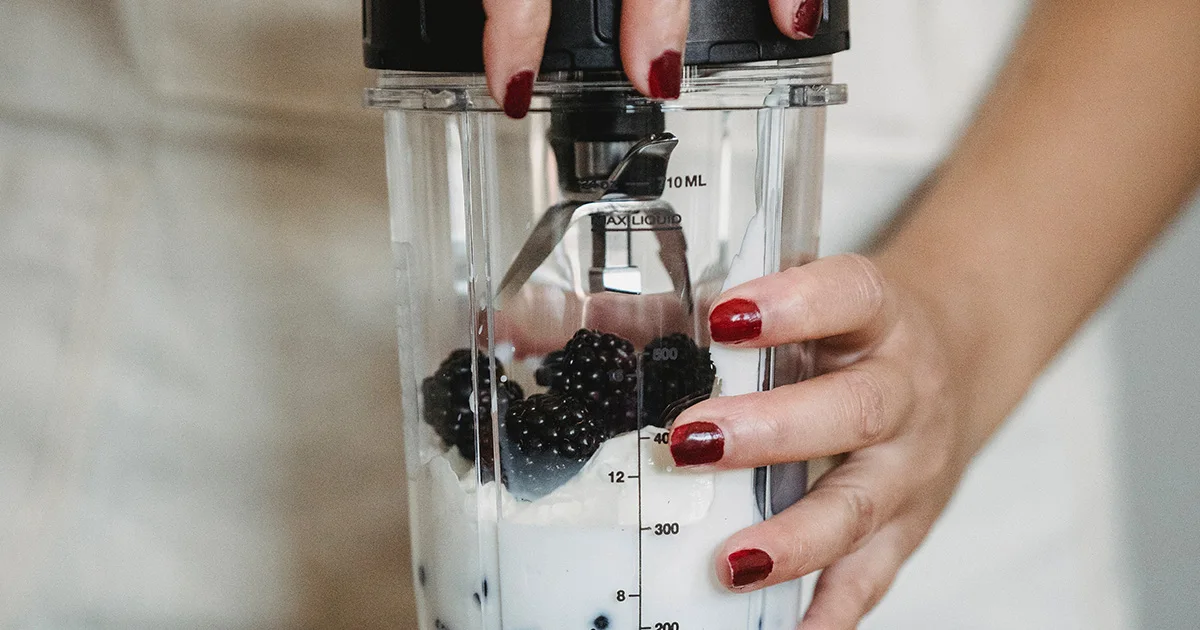Key takeaways
There's no solid scientific evidence that vitamin B12 shots help you lose weight
Some research suggests that B12 levels are lower in people with obesity, but that doesn’t prove that the vitamin can help with weight loss
B12 shots can be necessary for some people who cannot absorb enough of the vitamin in other ways
Here's what we'll cover
Here's what we'll cover
Key takeaways
There's no solid scientific evidence that vitamin B12 shots help you lose weight
Some research suggests that B12 levels are lower in people with obesity, but that doesn’t prove that the vitamin can help with weight loss
B12 shots can be necessary for some people who cannot absorb enough of the vitamin in other ways
Whether it’s a new diet supplement or workout trend, a new quick fix for weight loss always seems to be making headlines. Taking B12 for weight loss isn’t exactly a new idea, but it’s worth exploring if the research really backs up the marketing claims.
So, does B12 help you lose weight? The research isn’t clear. Let’s take a look.
What is vitamin B12?
Also known as cobalamin or cyanocobalamin, Vitamin B12 is an essential nutrient that plays a role in many areas of your health. The vitamin helps produce red blood cells, DNA, and energy, and is involved in your brain, heart, and nervous system health.
As a water-soluble vitamin, your body doesn’t store or produce B12 on its own. So, you need to get it from other sources, such as your diet or supplements. If you follow a typical Western diet, you probably have enough B12. Vitamin B12 occurs naturally in several animal products, including beef, poultry, clams, and dairy products. It’s also present in fortified foods such as cereals and nutritional yeast.
While many people can get enough B12 from their diet, not everyone does. If you’re older or follow a vegetarian or vegan diet, you may be at risk of low B12 levels. Certain autoimmune conditions and digestive issues, such as inflammation from celiac disease, can also impair your body’s absorption of vitamin B12.
Do B12 shots help you lose weight?
The short answer is that vitamin B12 shots probably won’t help you lose weight. B12 shots are not a scientifically proven tool for weight loss, especially for those who follow a balanced diet and get enough B12 (more on that below).
Where does the link between B12 and weight come from? Several studies have documented a link between low levels of B12 and weight gain and obesity, in both children and adults. The question is: do low B12 levels actually cause weight gain, or is it just an association and something else in people with low B12 leads to obesity? Another question in this context is, can B12 supplements help you lose weight?
According to a large sample of over 9,000 American adults, low B12 levels are associated with obesity, independent of race or ethnicity, gender, and socioeconomic and lifestyle factors. The same study also found that people with higher B12 levels are less likely to be obese. But, more research is needed to determine whether low B12 levels actually cause obesity, or if there are other contributing factors. The study also didn’t show that the vitamin can help lose weight.
In studies of mice, severely reducing their vitamin B12 levels significantly increased their body fat percentage and led to the development of fat tissue. Studies of rats have found that supplementing with B vitamins helped reduce their weight gain by improving their metabolism. However, what works for animals may not work for us, and more research regarding the effect of vitamin B12 on human body fat and metabolism is still needed.
Can B12 shots increase energy?
Given B12’s role in energy and metabolism, it seems like it would make sense for B12 shots to help with weight loss. When you have enough B12, your energy levels are normal and you feel less tired. In theory, this could indirectly help with weight loss because feeling more energized makes it easier to stick to your workout routine. By the same token, feeling fatigued may make it harder to workout, which could lead to weight gain. But, no research has proven this, so it remains a theory.
More energy also translates to a faster metabolism, which means increased calorie burning and faster weight loss. And, regular exercise revs up your metabolism, so if you are working out more because you feel more energized from a vitamin B12 shot, you might enjoy a one-two punch that leads to weight loss. But, again, while this sounds logical, it hasn’t been proven out.
What’s more, the boosts in energy and exercise performance people may enjoy from supplemental B12 don’t seem to apply if you already get enough vitamin B12 through your diet.
Foods high in B12
Adults need 2.4 micrograms (mcg) of vitamin B12 daily, and more if pregnant or breastfeeding. If you’re looking to boost your B12 levels naturally, you’ll be happy to find that there are several foods that are high in vitamin B12. These include:
Beef, especially beef liver
Turkey
Poultry
Clams
Tuna
Salmon
Eggs
Milk
Yogurt
Cheese
Fortified nutritional yeast
Fortified breakfast cereal
If you ever wonder if a food contains vitamin B12, just check the nutrition label.
You can also supplement dietary sources of B12 with over-the-counter B12. Vitamin B12 shows up in most multivitamins, and vitamin B12 supplements are available in tablet, liquid, capsule, lozenge, and even sublingual form. For vitamin B12 injections or nasal gels, you’ll need a prescription from your healthcare provider.
Signs of vitamin B12 deficiency
Low B12 levels are fairly common, with some researchers estimating that around 30% to 60% of people could have vitamin B12 deficiency.
A severe vitamin B12 deficiency can develop into megaloblastic anemia, a condition characterized by a low red blood cell count that requires treatment. However, most people deficient in vitamin B12 only experience mild symptoms, like fatigue and pallor. (Pallor describes a paleness in your skin or appearance that derives from a specific cause. Being pale-skinned in general does not necessarily mean you are vitamin B12-deficient.)
Serious symptoms of untreated vitamin B12 deficiency may include:
Jaundice (yellowing of the skin)
Diarrhea
Headaches
Heart palpitations
Glossitis (tongue inflammation accompanied by soreness, pain, or changes in texture or color)
Peripheral neuropathy (nerve damage)
Confusion
Dementia
Loss of balance
Weakness
Changes in your sense of touch, such as tingling sensations or numbness
To diagnose a vitamin B12 deficiency, health providers usually start with a blood test. Screening for vitamin B12 deficiency is usually not recommended for the average adult. But, in cases where you have one or more risk factors, it may be recommended.
Risk factors for vitamin B12 deficiency include:
Following a vegetarian or vegan diet
Being age 50 or older
Having had gastric bypass surgery, gastrectomy, or bowel resection surgery
Pregnancy
Pernicious anemia
Crohn’s disease
Celiac disease
Tapeworm infection
Pancreatic insufficiency
Bacterial overgrowth
Zollinger-Ellison syndrome
Inflammatory bowel disease
Damage to the small intestine
Long-term use of medications that affect absorption of vitamin B12, including metformin, histamine blockers, and proton pump inhibitors
If your B12 levels are low, your healthcare provider may recommend oral supplements or B12 shots. Taking an oral B12 supplement can be sufficient for restoring B12 levels in vegans and older adults, while people who have more severe low B12 levels due to a health condition may need to take B12 shots.
DISCLAIMER
If you have any medical questions or concerns, please talk to your healthcare provider. The articles on Health Guide are underpinned by peer-reviewed research and information drawn from medical societies and governmental agencies. However, they are not a substitute for professional medical advice, diagnosis, or treatment.
Ankar, A. & Kumar, A. (2022). Vitamin B12 Deficiency. StatPearls. Retrieved Oct. 10, 2023 from https://www.ncbi.nlm.nih.gov/books/NBK441923/
Baltaci, D., Kutlucan, A., Turker, Y., et al. (2013). Association of vitamin B12 with obesity, overweight, insulin resistance and metabolic syndrome, and body fat composition; primary care-based study. Medicinski Glasnik: Official Publication of the Medical Association of Zenica-Doboj Canton, Bosnia and Herzegovina, 10(2), 203–210. Retrieved from https://pubmed.ncbi.nlm.nih.gov/23892832/
Ghosh, S., Sinha, J. K., Putcha, U. K., et al. (2016). Severe but Not Moderate Vitamin B12 Deficiency Impairs Lipid Profile, Induces Adiposity, and Leads to Adverse Gestational Outcome in Female C57BL/6 Mice. Frontiers in Nutrition, 3, 1. doi:10.3389/fnut.2016.00001. Retrieved from https://www.ncbi.nlm.nih.gov/pmc/articles/PMC4722109/
Guéant, J. L., Guéant-Rodriguez, R. M., & Alpers, D. H. (2022). Vitamin B12 absorption and malabsorption. Vitamins and Hormones, 119, 241–274. doi:10.1016/bs.vh.2022.01.016. Retrieved from https://pubmed.ncbi.nlm.nih.gov/35337622/
Langan, R. C. & Goodbred, A. J. (2017). Vitamin B12 Deficiency: Recognition and Management. American Family Physician, 96(6), 384–389. Retrieved from https://www.aafp.org/pubs/afp/issues/2017/0915/p384.html
MedlinePlus. (2023). Vitamin B12. Retrieved Oct. 10, 2023 from https://medlineplus.gov/ency/article/002403.htm
Moghetti, P., Bacchi, E., Brangani, C., et al. (2016). Metabolic Effects of Exercise. Frontiers of Hormone Research, 47, 44–57. doi:10.1159/000445156. Retrieved from https://pubmed.ncbi.nlm.nih.gov/27348753/
Nagao, T. & Hirokawa, M. (2017). Diagnosis and treatment of macrocytic anemias in adults. Journal of General and Family Medicine, 18(5), 200–204. doi:10.1002/jgf2.31. Retrieved from https://www.ncbi.nlm.nih.gov/pmc/articles/PMC5689413/
Office of Dietary Supplements. (2021). Vitamin B12: Fact Sheet for Consumers. National Institutes of Health. Retrieved Oct. 10, 2023 from https://ods.od.nih.gov/factsheets/VitaminB12-Consumer/
Office of Dietary Supplements. (2022). Vitamin B12: Fact Sheet for Health Professionals. National Institutes of Health. Retrieved Oct. 10, 2023 from https://ods.od.nih.gov/factsheets/VitaminB12-HealthProfessional/
Ozer, S., Sonmezgoz, E., & Demir, O. (2017). Negative correlation among vitamin B12 levels, obesity severity and metabolic syndrome in obese children: A case control study. JPMA. The Journal of the Pakistan Medical Association, 67(11), 1648–1653. Retrieved from https://pubmed.ncbi.nlm.nih.gov/29171553/
Sánchez López de Nava, A. & Raja, A. (2022). Physiology, Metabolism. StatPearls. Retrieved Oct. 11, 2023 from https://www.ncbi.nlm.nih.gov/books/NBK546690/
Smith, A. D., Warren, M. J., & Refsum, H. (2018). Vitamin B12. Advances in Food and Nutrition Research, 83, 215–279. doi:10.1016/bs.afnr.2017.11.005. Retrieved from https://pubmed.ncbi.nlm.nih.gov/29477223/
Sun, Y., Sun, M., Liu, B., et al. (2019). Inverse Association Between Serum Vitamin B12 Concentration and Obesity Among Adults in the United States. Frontiers in Endocrinology, 10, 414. doi:10.3389/fendo.2019.00414. Retrieved from https://www.ncbi.nlm.nih.gov/pmc/articles/PMC6610317/
Zheng, Y., Ma, A. G., Zheng, M. C., et al. (2018). B Vitamins Can Reduce Body Weight Gain by Increasing Metabolism-related Enzyme Activities in Rats Fed on a High-Fat Diet. Current Medical Science, 38(1), 174–183. doi:10.1007/s11596-018-1862-9. Retrieved from https://pubmed.ncbi.nlm.nih.gov/30074168/











